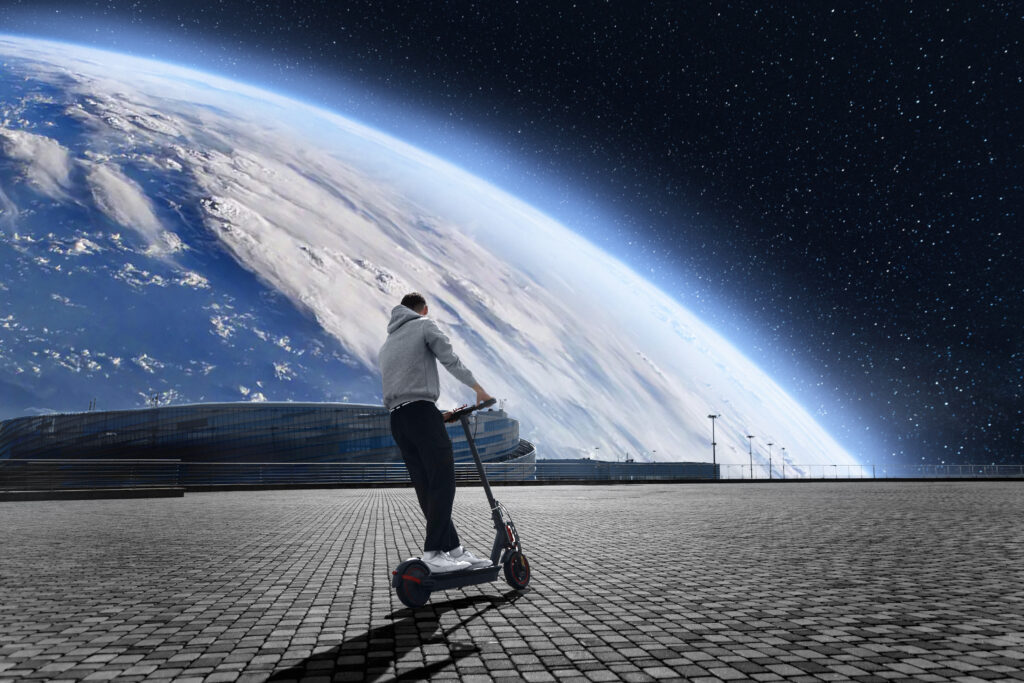Table of Contents
Introduction
The world of travel has always been a fascinating realm of discovery, adventure, and cultural exchange. As technology continues to evolve at an exponential rate, it is transforming the way we explore the world. From virtual reality experiences to sustainable travel initiatives, innovation is shaping the future of travel industry. In this article, we will delve into the exciting developments that lie ahead and explore how embracing innovation can enhance our travel experiences.
The future of travel goes beyond just technology; it also embraces sustainability and responsible travel practices. With a growing awareness of our impact on the environment, the travel industry is actively seeking ways to minimize carbon footprints, support local communities, and preserve natural resources. From eco-friendly accommodations to eco-tourism initiatives, the future of travel is set to be more environmentally conscious and socially responsible.
In this article, we will explore the key trends and developments that will shape the future of travel. We will delve into the impact of technology on travel experiences, the potential of virtual and augmented reality, the role of artificial intelligence in personalization, and the importance of sustainability in the industry. Get ready to embark on a journey into the future of travel, where innovation and excitement await at every turn.
The Rise of Virtual Reality in Travel
Virtual reality (VR) has emerged as a groundbreaking technology that allows travelers to immerse themselves in virtual environments. It offers a unique way to experience destinations before even stepping foot on a plane. With the aid of VR headsets, individuals can virtually visit renowned landmarks, museums, and breathtaking natural wonders, providing an experience akin to being physically present. This innovation has the potential to revolutionize the future of travel and inspire wanderlust in a whole new way.
Artificial Intelligence and Personalized Experiences
Artificial intelligence (AI) is transforming the future of travel by providing personalized recommendations and seamless assistance. Chatbots and virtual assistants can answer travel-related queries, suggest itineraries, and even make bookings. AI algorithms analyze user preferences and behaviors to offer tailored travel suggestions. With AI, travelers can expect more personalized experiences that cater to their unique interests and preferences.
Sustainable Travel and Eco-Tourism
In recent years, there has been a growing emphasis on sustainable travel and eco-tourism. Travelers are becoming more conscious of their environmental impact and are seeking ways to minimize it. Sustainable accommodations, responsible wildlife experiences, and eco-friendly transportation options are gaining popularity. The future of travel lies in promoting sustainable practices and preserving the world’s natural and cultural heritage for generations to come.
In the quest for a more environmentally conscious and socially responsible future, sustainable travel and eco-tourism are set to play a pivotal role. As travelers become more conscious of their impact on the planet and seek meaningful experiences, the demand for sustainable travel practices continues to grow. From reducing carbon footprints to supporting local communities, sustainable travel and eco-tourism are transforming the way we explore the world and shaping the future of travel.
Blockchain Technology and Secure Transactions
Blockchain technology has the potential to revolutionize the future of travel. Its decentralized nature ensures transparency, security, and efficiency in transactions. Smart contracts powered by blockchain can eliminate the need for intermediaries, reducing costs and increasing trust. Travelers can benefit from secure and tamper-proof digital identities, streamlined check-ins, and hassle-free border crossings.
Hyperloop: The Future of Transportation
Hyperloop is a cutting-edge transportation concept that promises to revolutionize travel speed and efficiency. It involves a network of sealed pods traveling through low-pressure tubes at high speeds. Hyperloop systems can significantly reduce travel times and offer a more sustainable alternative to air travel. With ongoing developments and successful prototypes, the future of transportation looks faster, greener, and more exciting.
Space Tourism: A New Frontier
Space tourism has the potential to revolutionize not only the travel industry but also our perception of what is possible. It opens up a new frontier for exploration, pushing the boundaries of human achievement and inspiring the future of travel. The advancements made in space travel technology and infrastructure will likely have significant spin-off effects, contributing to advancements in other industries and benefiting scientific research and development. Furthermore, the increased interest in space tourism may lead to a renewed focus on space exploration and the colonization of other celestial bodies, laying the foundation for future space civilizations.
In conclusion, space tourism represents an exciting and transformative frontier for the future of travel. With advancements in technology and a growing interest from both private companies and individuals, the possibility of venturing beyond Earth’s atmosphere is becoming a reality. Space tourism offers extraordinary experiences, pushes the boundaries of human achievement, and has the potential to inspire and shape the future of exploration. As we gaze towards the stars, we eagerly await the day when space travel becomes an accessible and awe-inspiring journey for adventurers and dreamers alike.
Space tourism is no longer confined to science fiction. Companies like SpaceX and Blue Origin are working towards making space travel a reality for civilians. In the near future, adventurous individuals may have the opportunity to orbit the Earth, experience zero gravity, and witness breathtaking views of our planet. Space tourism opens up a new frontier of exploration, pushing the boundaries of human curiosity and imagination.
Augmented Reality and Interactive Travel Guides
Augmented reality (AR) enhances the travel experience by overlaying digital information onto the real world. With AR-enabled devices, travelers can access interactive guides, historical information, and navigation assistance. Museums, heritage sites, and cities are leveraging AR to provide immersive and educational experiences. It brings destinations to life and allows travelers to engage with their surroundings in a whole new way.
Smart Luggage and Wearable Technology
Traveling with smart luggage and wearable technology can streamline the journey and enhance convenience. Smart suitcases equipped with GPS tracking, built-in scales, and USB charging ports make traveling more efficient. Wearable devices such as smartwatches provide real-time notifications, flight updates, and health tracking features. These innovations simplify travel logistics and ensure a smoother and more organized experience.
Biometrics: Streamlining Travel Processes
Biometric technology, such as facial recognition and fingerprint scanning, is revolutionizing airport processes. It enables seamless check-ins, secure border control, and faster security screenings. Biometrics eliminate the need for physical documents and streamline the travel journey. In the future, travelers can expect a more efficient and frictionless experience at airports and other travel hubs.
Social Media and Influencer Marketing
Social media has transformed the way we share travel experiences and discover new destinations. Influencer marketing has become a powerful tool for promoting travel destinations and services. Travelers now rely on the recommendations and experiences shared by influencers on platforms like Instagram and YouTube. Social media will continue to play a significant role in shaping travel trends and inspiring the future of travel.
The Role of Big Data in Travel
Big data analytics is revolutionizing the travel industry by providing valuable insights into consumer behavior and travel patterns. It helps travel companies personalize their offerings, optimize pricing strategies, and improve customer satisfaction. By harnessing the power of big data, travel businesses can deliver targeted experiences and make data-driven decisions to stay competitive in a rapidly evolving market.
Voice Recognition Technology for Travel Assistance
Voice recognition technology, powered by artificial intelligence, is transforming the way we interact with devices. Virtual assistants such as Siri, Alexa, and Google Assistant have seamlessly integrated into our daily routines, becoming indispensable companions. In the future, voice-activated travel assistants will provide instant travel information, booking assistance, and personalized recommendations. Travelers can simply speak their requests, and the AI-powered assistants will take care of the rest.
Drone Technology: Aerial Photography and Beyond
Drones have revolutionized aerial photography and videography, allowing travelers to capture stunning footage from unique perspectives. They have opened up new possibilities for creative storytelling and visual documentation of travel experiences. In the future, drones may play a more significant role in logistics, delivering goods to remote locations and enhancing search and rescue operations.
3D Printing and Customized Travel Accessories
3D printing technology enables the customization and on-demand production of various travel accessories. From personalized luggage tags to portable adapters and even custom-designed travel gear, 3D printing allows travelers to have unique and tailored items. This innovation empowers individuals to express their personal style and preferences while enhancing their travel experiences.
Conclusion
The future of travel holds immense promise and excitement. With the advent of virtual reality, artificial intelligence, and other groundbreaking technologies, we can expect enhanced travel experiences, personalized recommendations, and streamlined processes. Sustainable travel initiatives, such as eco-tourism and responsible practices, will become increasingly important. From hyperloop systems to space tourism, innovation is set to redefine the way we explore the world. As travelers, let us embrace these advancements and embark on a future where innovation and excitement go hand in hand.
FAQs
1. Will virtual reality replace physical travel? Virtual reality offers immersive experiences,but it cannot fully replace the joy and authenticity of physical travel. It can complement travel by providing virtual previews and unique perspectives.
2. How will blockchain technology enhance travel security? Blockchain technology ensures secure and transparent transactions, reducing the risk of fraud and identity theft. It can also streamline processes like digital identities and secure border control.
3. When can we expect space tourism to become accessible to the public? Space tourism is still in its early stages, but companies like SpaceX and Blue Origin are actively working towards making it a reality within the next decade.
4. How can augmented reality enhance the travel experience? Augmented reality overlays digital information onto the real world, providing interactive guides, historical context, and navigation assistance, making the travel experience more immersive and educational.
5. What are the benefits of using biometrics in travel? Biometric technology simplifies travel processes by enabling seamless check-ins, secure border control, and faster security screenings, reducing the reliance on physical documents and enhancing security.




